The Frigid Golden Age
Climate Change, the Little Ice Age, and the Dutch Republic, 1560–1720
Part of Studies in Environment and History
- Author: Dagomar Degroot, Georgetown University, Washington DC
- Date Published: January 2018
- availability: This ISBN is for an eBook version which is distributed on our behalf by a third party.
- format: Adobe eBook Reader
- isbn: 9781108321303
Find out more about Cambridge eBooks
Adobe eBook Reader
Other available formats:
Paperback, Hardback
Looking for an inspection copy?
Please email [email protected] to enquire about an inspection copy of this book
-
Dagomar Degroot offers the first detailed analysis of how a society thrived amid the Little Ice Age, a period of climatic cooling that reached its chilliest point between the sixteenth and eighteenth centuries. The precocious economy, unusual environment, and dynamic intellectual culture of the Dutch Republic in its seventeenth-century Golden Age allowed it to thrive as neighboring societies unraveled in the face of extremes in temperature and precipitation. By tracing the occasionally counterintuitive manifestations of climate change from global to local scales, Degroot finds that the Little Ice Age presented not only challenges for Dutch citizens but also opportunities that they aggressively exploited in conducting commerce, waging war, and creating culture. The overall success of their Republic in coping with climate change offers lessons that we would be wise to heed today, as we confront the growing crisis of global warming.
Read more- The first historical study that explores how a society prospered as the climate changed
- Focuses on commerce, conflict, and culture in examining a society during the Little Ice Age
- Bridges several disciplines, including historical climatology, paleoclimatology, early modern history, maritime history, environmental history, climate history, and the history of war and science
Reviews & endorsements
'Degroot offers surprising insights into links between weather variations during the chilliest phase of the Little Ice Age and the Dutch Golden Age by exploring how merchants, soldiers and investors exploited new opportunities resulting from to climate change. The book is well-researched and exciting to read.' Christian Pfister, Universität Bern, Switzerland
See more reviews'In The Frigid Golden Age Dagomar Degroot, a leading climate historian, presents a highly original perspective on an unusually cold era when Europe was immersed in a series of devastating wars on land and the Dutch were becoming the greatest maritime capitalist power from the Atlantic to the East Indies. In compelling prose, he expands our understanding of how climate cycles, economic and political rivalries, and environmental history interact.' Richard Tucker, University of Michigan
'Dagomar Degroot has written a powerful addition to the emerging literature on the wider human impacts of the Little Ice Age, in a book that will have a major impact on the field. His argument that the Dutch of the Golden Age responded creatively and successfully to the challenge of cold climate will have an important place in our evolved discussion of climate change in the twenty-first century.' John Brooke, Ohio State University
'Skillfully wielding diverse interdisciplinary tools, Dagomar Degroot breaks with clichés of the Little Ice Age as unrelenting social catastrophe to reveal Dutch communities mitigating negative effects of climate change while exploiting new possibilities available to the perceptive and adaptive. The Frigid Golden Age establishes a new benchmark in the environmental history of early modern Europe.' Richard C. Hoffmann, FRSC, Professor Emeritus and Senior Scholar, Department of History, York University, Toronto
'While most historians have focused on correlating early modern climate cooling with unrest, crisis, and decline across the Northern Hemisphere, The Frigid Golden Age offers a more sanguine appraisal of an aggressively commercial, modernizing nation's adaptation to climate change, albeit at the expense of some of its own citizens and untold others. … As a historian engaged in ongoing collaboration with historical climatologists, Degroot is skillful in his interpretation of state-of-the-art climate science, some of which is presented in statistical graphs, charts, and time series that integrate documentary sources with studies of instrumental and proxy data relevant to the history of the Netherlands.' Anya Zilberstein, Environmental History
'The Frigid Golden Age demonstrates that climate should play a larger role in Golden Age historiography, and the book's interdisciplinary approach, its clear and careful methodology, and diverse use of sources establish an effective approach.' Adam Sundberg, The Journal of Interdisciplinary History
'The Frigid Golden Age is essential reading for anyone interested in pursuing research in the field of climate history.' Nicholas J. Cunigan, H-Environment Roundtable Reviews
'Degroot has uncovered a fascinating element of climate history, and it is a testament to his archival prowess that he has found this treasure trove of observations from a variety of sources, and that these sources were probably not all sitting in the same archive, much less in a folder labeled 'Weather'.' James Bergman, H-Environment Roundtable Reviews
'In his book, Dagomar Degroot makes a strong argument for bringing the humanities and the natural sciences closer together to produce interdisciplinary studies that can generate new perspectives.' Katrin Kleemann, H-Environment Roundtable Reviews
'Degroot's Frigid Golden Age is an invaluable model for scholars doing climate history, but it is hardly the last word, and its publication should create opportunities for scholars of gender, indigeneity, or empire to push forward the research.' Thomas Wickman, H-Environment Roundtable Reviews
'… this book successfully brings together different methodological approaches, draws on a variety of source material and provides an engaging historical narrative which embraces a wide range of subject areas … it will be of interest to historians of the Dutch Republic and Europe as well as environmental historians, particularly those interested in the relationship between weather, climate change and human society.' James P. Bowen, European History Quarterly
'… this book offers a measured and painstaking reconstruction of some of the climate-related challenges facing Dutch society, as probably the most prosperous of the early modern period, in an age of comparatively cool and stormy weather … The book opens with a very clear explanation of the complex dynamics of climate change and climatic systems that governed prevailing winds and pressure systems in north-west Europe … Nevertheless, what this book demonstrates as effectively as any other is the overwhelming significance of the weather and the seasons in early modern European life, and for that reason alone, it deserves to be widely read and lauded.' Paul Warde, Metascience
'Degroot brings considerable expertise to the study of climate and conducts research with a fine eye for historical sources that speak to studies of weather and climate. He also recounts events in gripping narrative form, enabling his book to serve as an approachable and dependable account of the early history of the republic.' Dagomar Degroot, Journal of Modern History
Customer reviews
Not yet reviewed
Be the first to review
Review was not posted due to profanity
×Product details
- Date Published: January 2018
- format: Adobe eBook Reader
- isbn: 9781108321303
- availability: This ISBN is for an eBook version which is distributed on our behalf by a third party.
Table of Contents
Introduction: crisis and opportunity in a changing climate
1. The Little Ice Age
Part I. Commerce and Climate Change: Part I. Preface
2. Reaching Asia in a stormy, chilly climate
3. Sailing, floating, riding, and skating through a cooler Europe
Part II. Conflict and Climate Change: Part II. Preface
4. Cooling, warming, and the wars of independence, 1564–1648
5. Gales, winds, and Anglo-Dutch antagonism, 1652–88
Part III. Culture and Climate Change: Part III. Preface
6. Tracing and painting the Little Ice Age
7. Texts, technologies, and climate change
Conclusion: lessons from ice and gold
Appendices.
Sorry, this resource is locked
Please register or sign in to request access. If you are having problems accessing these resources please email [email protected]
Register Sign in» Proceed
You are now leaving the Cambridge University Press website. Your eBook purchase and download will be completed by our partner www.ebooks.com. Please see the permission section of the www.ebooks.com catalogue page for details of the print & copy limits on our eBooks.
Continue ×Are you sure you want to delete your account?
This cannot be undone.
Thank you for your feedback which will help us improve our service.
If you requested a response, we will make sure to get back to you shortly.
×
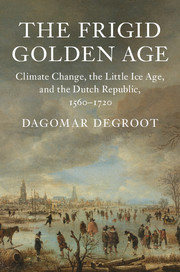
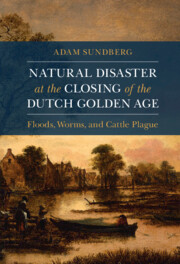
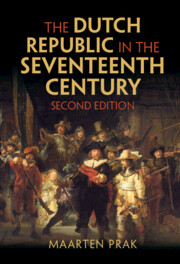
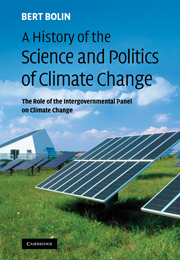
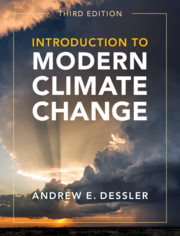
.jpg)
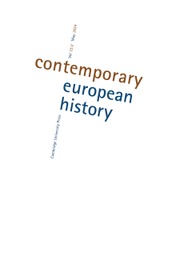

.jpg)